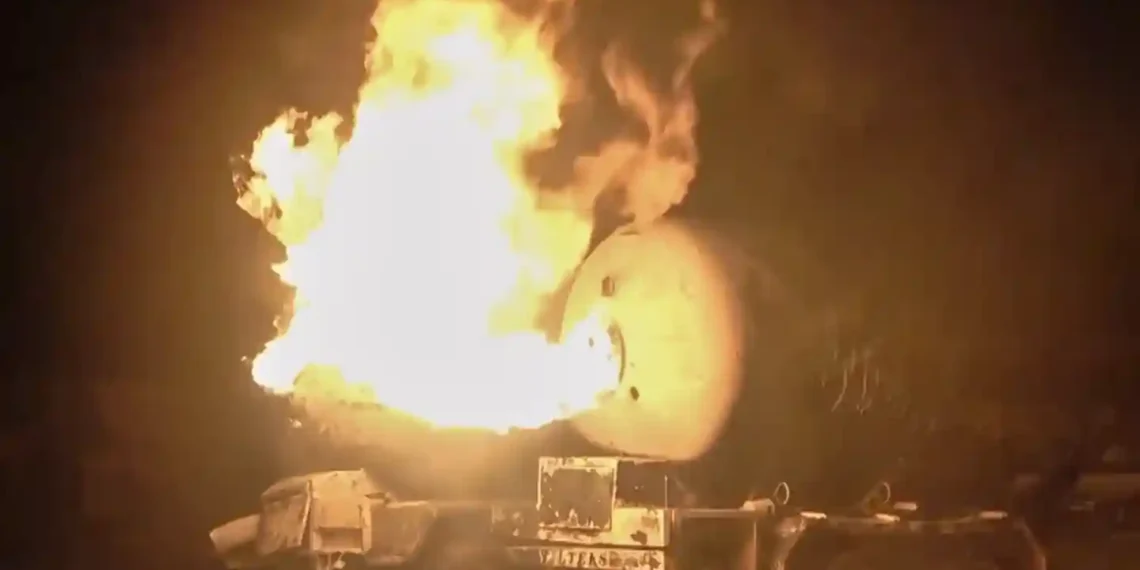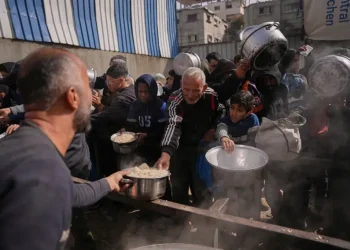U.S. Airstrikes on Yemeni Oil Port Kill 74, Marking Deadliest Attack in Trump’s Yemen Campaign
U.S. airstrikes targeting an oil port held by Yemen’s Houthi rebels have resulted in 74 deaths and 171 injuries, the group reported on Friday. This marks the deadliest known strike since President Donald Trump launched a new campaign against the Houthis on March 15.
While it’s difficult to assess the full toll of Trump’s ongoing military campaign, the U.S. Central Command has yet to release specific details on the campaign’s targets or casualty figures. Meanwhile, the Houthis, who control the attacked areas, have been less forthcoming with comprehensive updates, often releasing broad statements about the strikes that mainly focus on civilian casualties.
The deadly strike on the Ras Isa oil port represents a significant escalation in the U.S. campaign, marking the first time oil facilities were targeted. The port, located along Yemen’s Red Sea coastline in Hodeida, is vital for the Houthis, serving as the endpoint for an oil pipeline from Yemen’s energy-rich Marib governorate.
Central Command issued a statement defending the strikes, claiming the attack aimed to eliminate a crucial fuel source for the Houthi rebels, who are backed by Iran. The U.S. also cited the rebels’ reliance on the port to fund their operations, which have destabilized the region for over a decade. However, the military did not acknowledge any casualties from the strike nor provide any assessment of the damage.
In contrast, satellite imagery released by The Associated Press showed destroyed tanks and oil leaks in the Red Sea, suggesting extensive damage to the port and its infrastructure.
Following the airstrikes, the Houthis launched a missile toward Israel, which was intercepted by the Israeli military. Sirens were triggered in Tel Aviv and other areas, escalating tensions in the region.
This action has added another layer to the already complex international dynamics surrounding the Yemen conflict, which is further complicated by claims that a Chinese satellite company has been aiding the Houthis in targeting U.S. interests.
The Houthis have condemned the U.S. airstrike as “completely unjustified aggression,” particularly targeting a vital civilian facility. The port has been essential for the flow of gasoline, diesel, and liquefied petroleum gas to Houthi-controlled areas. The Houthis argue that the U.S. attack will severely impact daily life in these areas, which have already been devastated by years of conflict.
The attack on Ras Isa marks the deadliest incident in Trump’s ongoing campaign against the Houthis. Analysts have noted that assessing the full extent of casualties in these strikes has been challenging due to the limited and often contradictory information provided by the parties involved.
Luca Nevola, a senior analyst on Yemen, stated, “Since they are targeting civilian areas, there’s a lot more victims, but it’s also difficult to assess how many because the Houthis are releasing umbrella statements that cover all victims or stress only the civilian casualties.”
This difficulty is further compounded by the U.S. strikes targeting military sites, which complicates the calculation of civilian versus military casualties.
Amid the strikes, the U.S. State Department has accused Chinese satellite company Chang Guang Satellite Technology Co. Ltd. of “directly supporting” Houthi attacks on U.S. interests. The U.S. claims the firm has provided satellite images that assisted the rebels in targeting U.S. warships and commercial vessels navigating the Red Sea.
The Chinese government has not confirmed or denied these claims, with a spokesperson stating that China is committed to regional peace and stability. The U.S. Treasury had previously sanctioned the company in 2023 for allegedly assisting the Russian Wagner Group with satellite imagery.
The new U.S. campaign against the Houthis comes after the rebels threatened to target Israeli ships in response to Israel blocking aid to Gaza. The Houthis have been actively targeting merchant vessels in the Red Sea corridor, significantly disrupting global trade. Over the past several months, the group has attacked more than 100 vessels, sinking two and killing four sailors.
Despite these provocations, the ongoing U.S. strikes have yet to resolve the wider geopolitical issues in the region. A second round of negotiations between the U.S. and Iran on Tehran’s nuclear program is scheduled for Saturday in Rome, further highlighting the interconnected nature of the conflict in Yemen.
As the U.S. airstrikes continue, the situation in Yemen remains dire. The strikes have had a devastating impact on civilian infrastructure, while the Houthis’ military retaliation adds further complexity to an already volatile region. With competing international interests at play, including the U.S., Iran, and China, the conflict in Yemen shows no signs of slowing down, leaving many questions unanswered about its long-term consequences.
This article was rewritten by JournosNews.com based on verified reporting from trusted sources. The content has been independently reviewed, fact-checked, and edited for accuracy, neutrality, tone, and global readability in accordance with Google News and AdSense standards.
All opinions, quotes, or statements from contributors, experts, or sourced organizations do not necessarily reflect the views of JournosNews.com. JournosNews.com maintains full editorial independence from any external funders, sponsors, or organizations.
Stay informed with JournosNews.com — your trusted source for verified global reporting and in-depth analysis. Follow us on Google News, BlueSky, and X for real-time updates.













